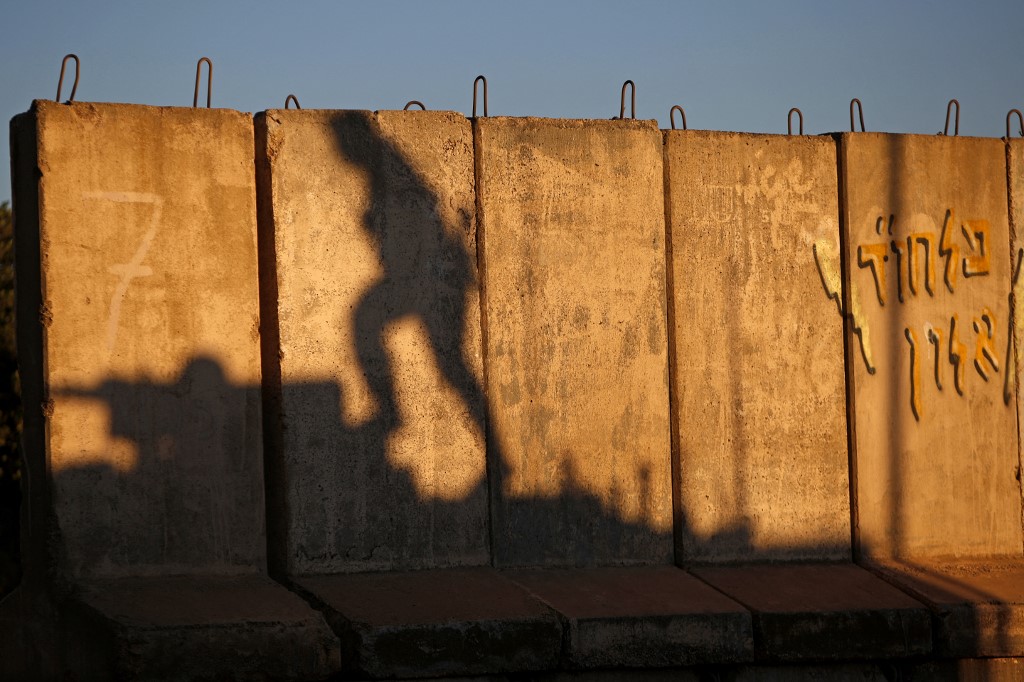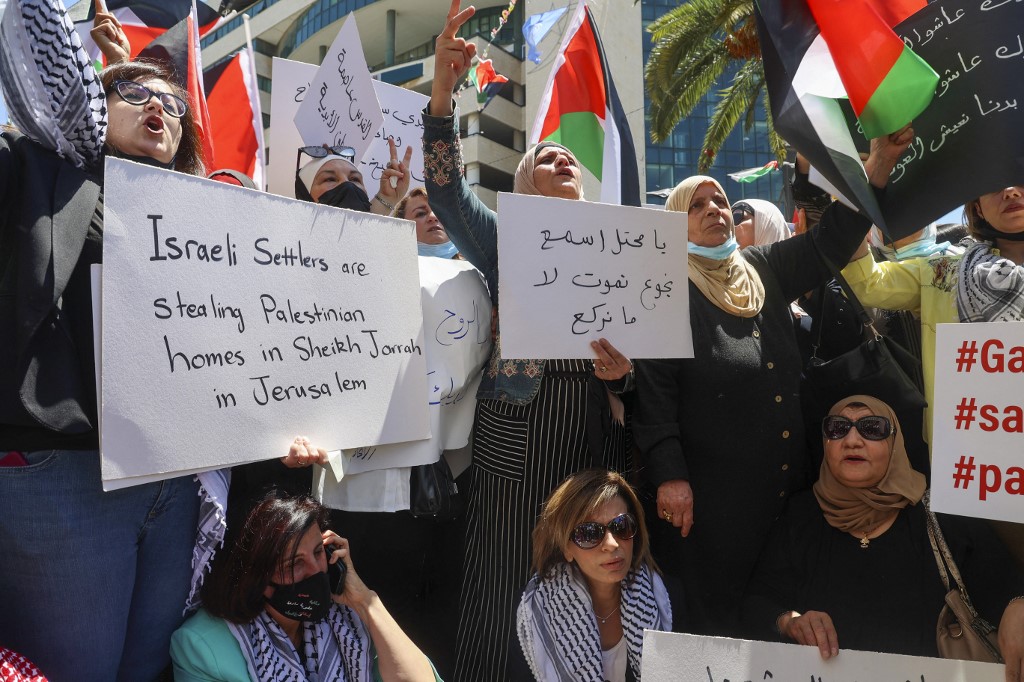
Israel-Gaza: Was the latest assault a tipping point in the Palestinian struggle?
Now is the time to learn from the past and prepare for the future. The next few weeks will show the world whether the failure of the Israel army’s latest operation in Gaza becomes a tipping point in the Palestinian struggle for basic rights.
Settler-colonialism has not fared well since 1945, as the French discovered in Indochina and even more so in Algeria; the Dutch in Indonesia and South Africa; and the English in Rhodesia (now Zimbabwe). This was not always the case. Canada, Australia, New Zealand, the United States, and much of Latin America have settler-colonial origins, and yet were able to establish durable, highly respected sovereign states by violently and permanently extinguishing - or at least sidelining - the presence of native peoples, while depriving them of dominion in their ancestral homelands.
In effect, if ethnic cleansing and crimes against humanity had not effectively subdued or exterminated the natives by 1914, the settle-colonial regimes were destined for collapse, which became manifest in a series of anti-colonial wars after World War II.
The next few weeks will be revealing. Can Palestinian unity hold? Will the continuing unrest in Jerusalem suggest the onset of a Third Intifada?
Some especially prized colonies managed to survive for some decades if they were prepared to pay the price in blood and treasure, but the game - as it had been played in the colonial era - was essentially over.
There are many explanatory narratives for this downfall of European colonialism. The most influential one suggests a combination of rising nationalist passions and changing international norms, the vulnerabilities of colonising elites to the mobilised resistance of subjugated peoples, the international weakening of European colonial powers by the losses of World War II, and the rise to global preeminence of the anti-colonial Soviet Union and the highly ambivalent US, whose identity was blurred due to contradictions between celebrating its war of independence and maintaining its control over the western alliance whose prominent members were key colonial powers.
Stay informed with MEE's newsletters
Sign up to get the latest alerts, insights and analysis, starting with Turkey Unpacked
The underlying shift in balance might have been mostly in the minds of both colonised and coloniser: the belief that the colonists could be beaten, reversing the earlier posture of defeatism, when it was presumed hopeless to challenge colonial rule because of the disparities in weaponry and the ruthlessness of settlers. A historical tipping point can be traced back to the 1904-05 Russo-Japanese war, when the then "backwards" Japanese defeated the colonising Russians, creating a precedent that European powers were not invincible and could be successfully resisted.
Israeli settler-colonialism
Given this background, the success of the Zionist project in establishing Israel is remarkable. The colonising ethnicity of Zionism took the form of a movement rather than a state. Unlike the standard "settler-colonial" image, Jewish immigrants arrived in Palestine with a sense of entitlement based on a long connection by ethnic tradition with the land, strongly expressed through the biblical promise of a return to “the promised land”.
Such claims, in the minds of Zionists, took precedence over the claims of non-Jewish residents, no matter how connected they were with the land of Palestine and how deep their ancestral roots. More cynically, Palestinian rights were erased by the Zionist sense of mission. Many Palestinians were expelled from their homeland, and the remainder were subdued to make way for Jewish destiny.
This blend of rationalisations for permanently banishing large numbers of the majority population from their homeland was given an indirect humanitarian justification by the rise of Nazism in the 1930s, combined with and accentuated by the reluctance of liberal democratic governments to admit many Jewish refugees. Whatever the inequities of displacing Palestinians to make way for a “democratic” Jewish state, they were less compelling to the western mind than the need to allow surviving Jews a place of sanctuary after the horrors of the death camps, culminating in the Holocaust.
As might have been expected, the non-Jewish majority in Palestine didn’t view the issues in the same way, regarding their indigenous territorial claims of the native population as protected by law and morality, and viewing Jewish suffering as essentially a European problem that should not be solved at the expense of a non-European people.
For most of the world, especially Arab countries, the Zionist project was perceived as the last European colonial venture - an encroachment on the sovereign rights of a non-European nation. Justice demanded that the Zionist project fail so as to enable the native population of Palestine to control their national destiny in accordance with the most fundamental of human rights: the right of every people to self-determination.
Yet, this is far from the whole story. Rights often yield to power. In the case of Israel, Jews had no metropolitan country to which they could return, as most of the French did in Algeria - and Zionism has managed to establish and sustain a flourishing state for 73 years. In fact, the underlying impulse of the founders of the Zionist movement was a reaction to the history of antisemitism in Europe, and the belief that Jews would never be accepted as equals in European society.
Peace and reconciliation
Such a background has made either/or solutions for the Palestine and Israel struggle cruel and seemingly genocidal, leading to a sense that the only viable futures for the two peoples are either a continuation of the distinctive Israeli brand of apartheid resting on an ideology of Jewish supremacy, or an abandonment of apartheid by way of genuine commitments to racial equality and a condition of peaceful coexistence.
A peace, reconciliation and an accountability process of some sort would be needed to acknowledge and somewhat address past injustices, serving as a prelude to constructing a just political order of whatever shape representatives of the two peoples could agree upon to address their overlapping territorial claims of self-determination.
Something of this sort happened in post-apartheid South Africa. Despite the vast differences in circumstances, especially when it comes to demographic balance, the white supremacists gambled successfully that they would be better off abandoning apartheid in favour of multiracial constitutionalism.
In retrospect, the odds were strongly against such a gamble, given the near-certainty that the long and harshly oppressed African country would vindictively control the governing process once given the chance. There have been disappointments, but as an alternative to the persistence of apartheid or a bloody armed struggle to end it, South Africa is a shining success of peacemaking. The experience could be instructive for Palestinians and Israelis, as well as for civil-society solidarity efforts and intergovernmental/UN diplomacy going forward.
One would hope that this latest display of high-tech militarised violence by Israel, especially as carried out so vengefully in Gaza, would give rise in due course to the kind of Israeli self-scrutiny that led the Afrikaners to reevaluate their options and cast aside apartheid.
Such a radical reevaluation of priorities would be hidden at first, but could take sufficient hold on the political imagination of Israelis over time to - at some point - produce the sort of drastic change that occurred when Nelson Mandela was most unexpectedly released from prison after 27 years of confinement, and immediately accepted as the anointed lead peacemaker and future president of the country.
Crushing Palestinian resistance
For Israelis to go down such a path seems so unlikely now as to be unworthy of discussion. Rather, the opposite adjustment to adversity seems far more plausible in the immediate future. It arises from the reasoning of “hard men” that it is not enough to punish Palestinians in Gaza disproportionately for daring to fight back against Israeli provocations. What the Israeli state believes is needed is a display of force sufficient to crush, once and for all, the Palestinian will to resist, whatever degree of violence it takes. Most Israelis seem to be thinking along these lines.
Yet, I would not give up on a modified version of the South African defeat of apartheid. To achieve results, it took decades of internal and external resistance, reinforced by a resolute international boycott campaign and UN condemnations of apartheid. The wider context of the failed Israeli recourse to punitive violence on a large scale has given rise to some responses that have the potential to strengthen the Palestinian struggle, putting new pressure on the Israelis to reconsider their approach to security and serenity before it is too late.
Palestinians exhibited greater unity in this latest onslaught than during prior violent flareups. There also seemed to be more global voices that spoke against the Gaza onslaught and were appalled by US efforts to shield Israel even from allowing the UN Security Council to call for a ceasefire.
Furthermore, the communal violence of Arabs and Jews in mixed Israeli towns and villages, where the two peoples live side by side, made it evident that ‘48 Palestinians were part of the wider anti-apartheid struggle and could not be separated from the occupied territories, or from the plight of millions of refugees and exiles. It became evident that the Palestinian people, whatever their circumstances, are one people.
This sense of belonging to the Palestinian struggle was further demonstrated by protests in Jordan and Lebanon, as well as pro-Palestinian demonstrations in the countries whose governments were bribed into an acceptance of “normalisation” deals and among Israel’s western backers, including the US. The Israeli army gave their operation the code name “Guardian of the Walls”, but upon closer inspection, one notices cracks in those walls, tarnishing the boasts of the guardians.
Flowers among the ashes
The next few weeks will be revealing. Can Palestinian unity hold? Will the continuing unrest in Jerusalem suggest the onset of a Third Intifada? Will the UN finally come alive, highlighting the responsibility to protect principle, readying the General Assembly to invoke the Uniting for Peace resolution for future use, and requesting an advisory opinion from the International Court of Justice on the legality of the prolonged occupation of the West Bank and East Jerusalem, the blockade of Gaza, and the denial of repatriation rights to Palestinian refugees?
We should also watch the internal political repercussions of these events on Israel itself. Will the views of 72 percent of Israeli Jews supposedly dissatisfied with the “premature” ceasefire push Israel towards even harsher forms of belligerency? Will Prime Minister Benjamin Netanyahu find yet another way to stay in power? Or a new leadership be as stubbornly resistant to arranging a sustainable, just peace? Will the Iran nuclear agreement be restored and US sanctions on Iran substantially removed? Will the supplemental military aid for Israeli weaponry of $735m, or even more, go forward?
The people of Gaza are once again burying children and loved ones, and enduring the devastating effects of a massive Israeli military operation - all in the face of an underlying humanitarian emergency compounded by the Covid-19 pandemic, a degraded medical system, and long-overburdened infrastructure. Yet, despite acute victimisation, and in contrast to earlier massive Israeli military attacks, some flowers seem to be blooming among the ashes, visible to anyone who looks closely.
The views expressed in this article belong to the author and do not necessarily reflect the editorial policy of Middle East Eye.
Middle East Eye delivers independent and unrivalled coverage and analysis of the Middle East, North Africa and beyond. To learn more about republishing this content and the associated fees, please fill out this form. More about MEE can be found here.







